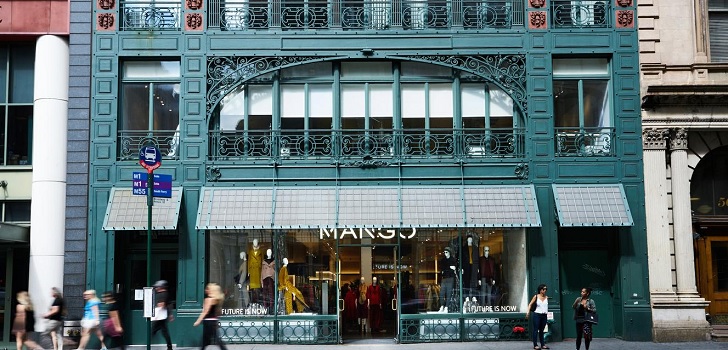Mango redefines sourcing and releases 8% of its suppliers in the middle of strategic transformation
The Spanish fashion giant, second by revenue, counted in 2018 with 561 suppliers and 1,208 factories to produce 146.7 million garments.

Mango redefines its sourcing strategy in the middle of product transformation. The Spanish fashion giant, second by revenue, has focused its network in 2018, releasing 7.6% the number of suppliers compared to the previous year. The company, however, has increase its production 7.6%.
According to the groups latest Sustainability Report 2018, Mango counted at the end of its fiscal year 2018 with 561 suppliers, compared to the 607 the previous year. Reduction of the number of partners also concluded in a descent in the number of factories that worked for the group, from 1,256 factories in 2017 to 1,208 in 2018.
As for production, the company produced during 2018 a total of 146.7 million garments, compared to the 136.7 million in 2017, putting this new number at the same level as the one in 2016. Mango reduced its production at the same time it started a strategy focused in the reduction of costs, while in 2018, the company changed that policy.
After its debut in the Met Gala red carpet, Mango stated that it left behind years of reding prices and coming closer to fast fashion, to recovering a strategy that included raising quality and depending on the product, also prices.
Mango continues to concentrate 60% of its production overseas, even if last year it rearranged its production map reinforcing some productive markets like Turkey or Morocco. The core of its suppliers, a total of 445 companies, are garments, while 116 are complements.
Almost 80% of the production of Mango is in an offshore model
The company explains in the document than none of them work exclusively for Mango. It also exposes the two systems that compose its sourcing politics. Almost 80% of its production is in an offshore model, were Mango is only responsible for the design of the products and 20% were the company is also involved in the purchase of the materials.
China continues to be the first stocking hub for Mango, despite reducing 11.6% its factories, up to 327 factories. Turkey is the second market, with 244 factories, 10.9% more than in 2017, while Morocco is the third position with 135 factories, 20.5% more.
Despite the growth of the activity in Turkey and Morocco the stability of the proximity in Mango’s sourcing strategy remained stable compared to the one last year. Its factories in Portugal went from 112 in 2017 to 54 in 2018, and in Spain, its local market, the group counts with 35 productive centers.
The groups international market represents 77% of its total sales
Overseas, the company has reinforced its activity specially in Bangladesh, where its over 100 factories, while reducing it in Vietnam. The company also counts with productive centers in companies like Cambodia, Myanmar, India, Pakistan and Indonesia.
The group closed 2018 with a rise of 17% in its ebitda, that arrived at 135 million euros. However, the company ended its fiscal year with a drop of 6% in its sales, up to 35 million euros.
In 2018, Mango also reduced its financial debt to two years, arriving at 315 million euros. Sales for the company rised 1.8%, up to 2.2 billion euros, which led to its first positive year after two on the low. 77% of its income comes from international markets.


info@themds.com
Validation policy for comments:
MDS does not perform prior verification for the publication of comments. However, to prevent anonymous comments from affecting the rights of third parties without the ability to reply, all comments require a valid email address, which won’t be visible or shared.
Enter your name and email address to be able to comment on this news: once you click on the link you will find within your verification email, your comment will be published.